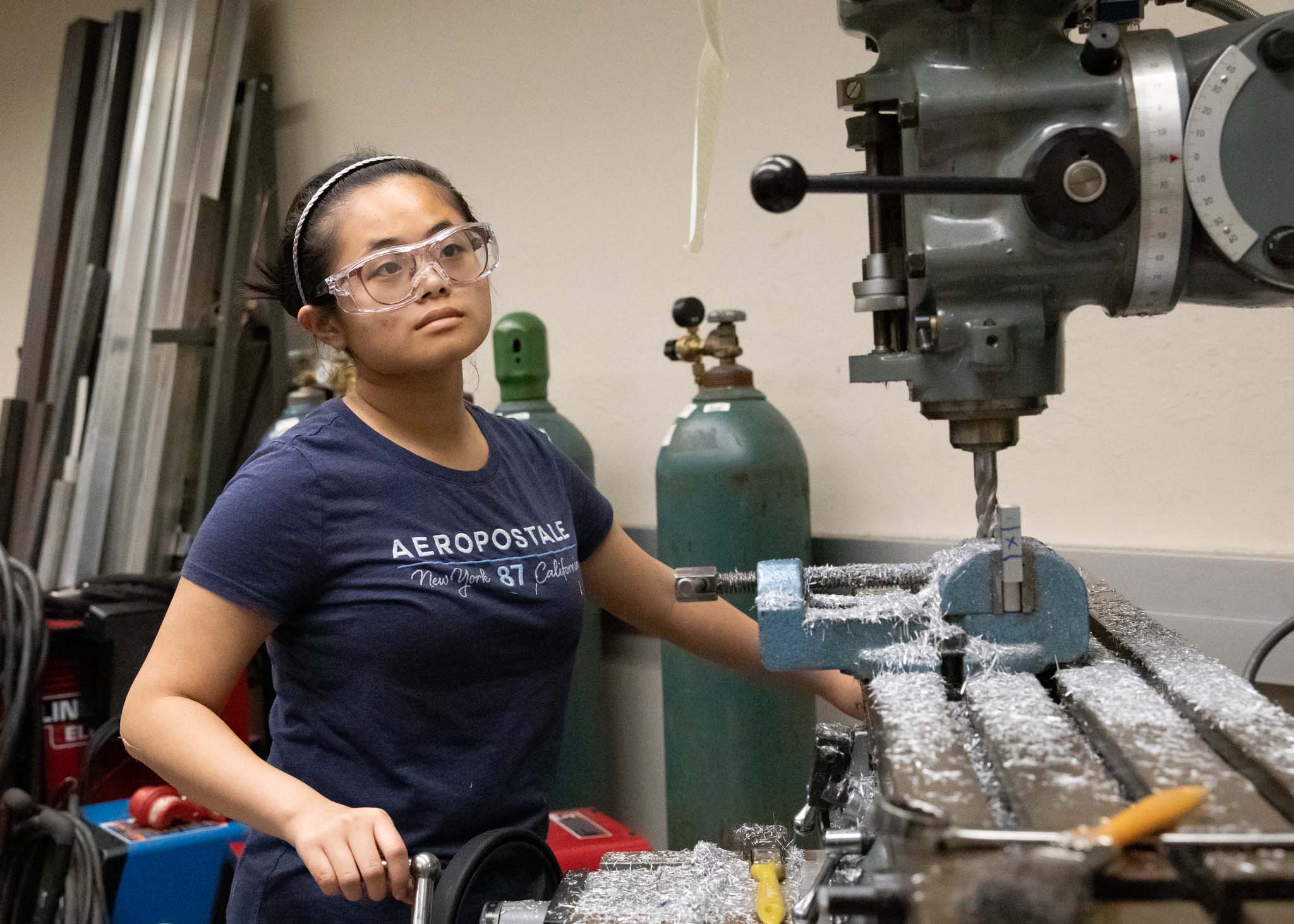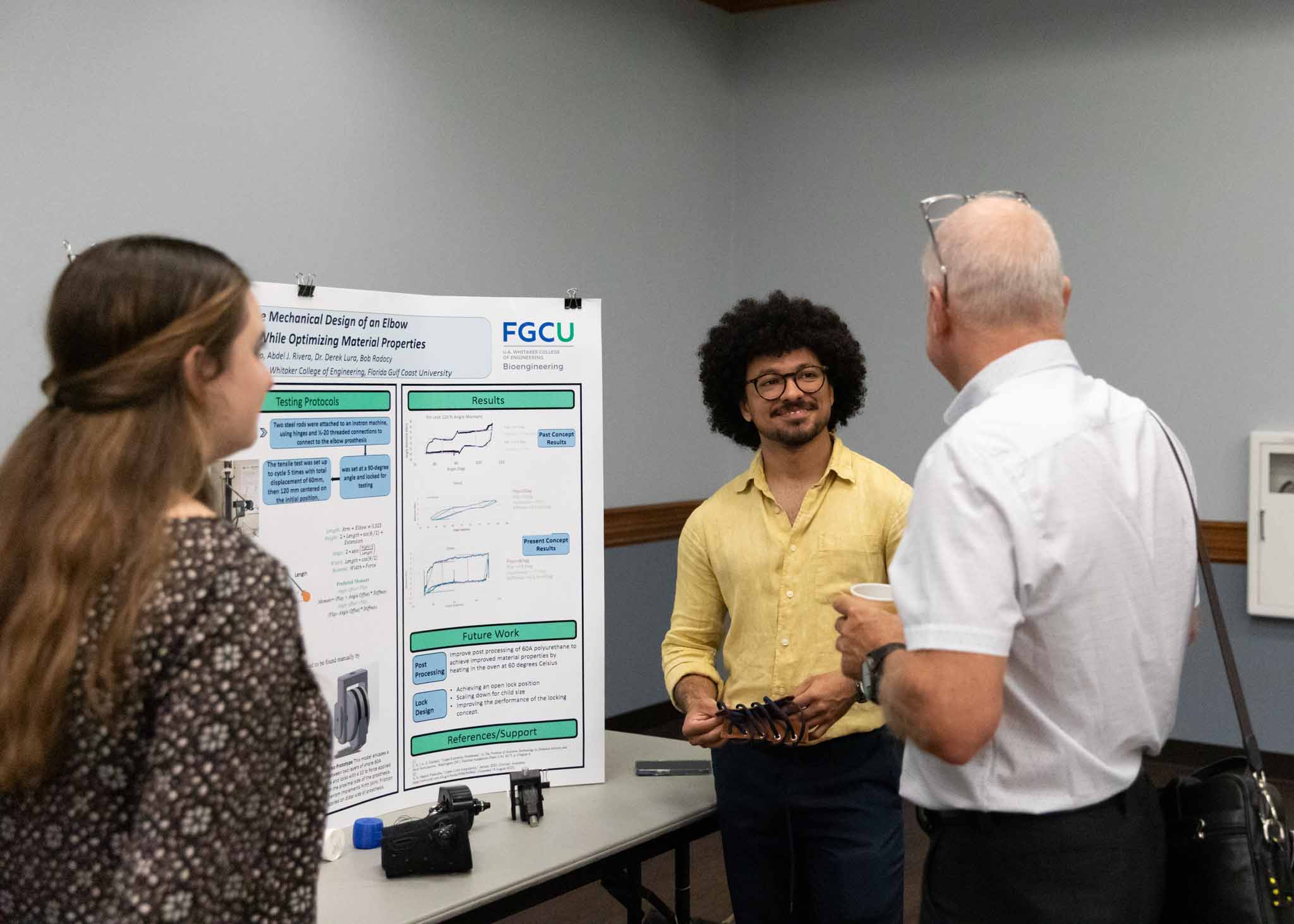Bioengineering (BS)
The Bachelor of Science in Bioengineering at Florida Gulf Coast University emphasizes the application of new technology to biomaterials, biomechanics, and biomedical tools and procedures.

As a bioengineering student, you'll learn how to solve problems associated with interactions between living and non-living materials and systems. Our program features a high-quality education in engineering, life sciences and physical sciences, preparing you for careers in a variety of environments. Outside of the classroom, there are many opportunities for you to gain additional experience to complement your education, whether it's by completing an internship, working on a hands-on senior design project, or being involved with the student chapter of Biomedical Engineering Society (BMES).
After graduation, our students seek careers in a variety of areas, including medical device & biotechnology, healthcare, and government. You'll be prepared for advanced degrees in cutting-edge areas such as cell and tissue engineering and advanced medical imaging technologies. The program is also an excellent stepping-stone for entry into schools and careers focused in areas such as medicine and law. With the addition of a 4-credit general biology course, you'll meet the prerequisite requirements of most medical schools.

-
Accreditation
Toggle More Info -
Admissions Information
Toggle More Info -
Program Requirements
Toggle More Info -
Degree Map
Toggle More Info -
Course Description
Toggle More Info -
Course Schedule
Toggle More Info -
Educational Objectives and Student Outcomes
Toggle More Info -
Learning Outcomes
Toggle More Info -
Tuition, Fees, and Financial Assistance
Toggle More Info


